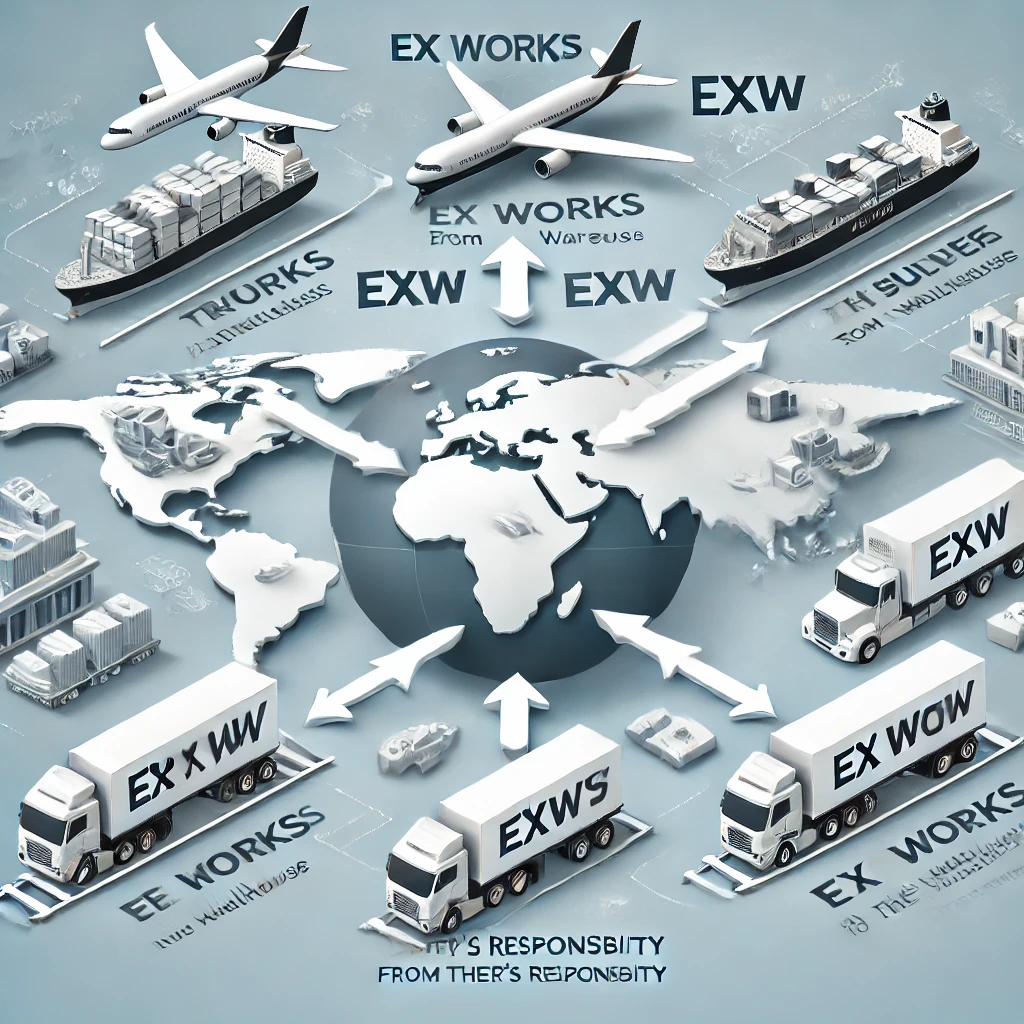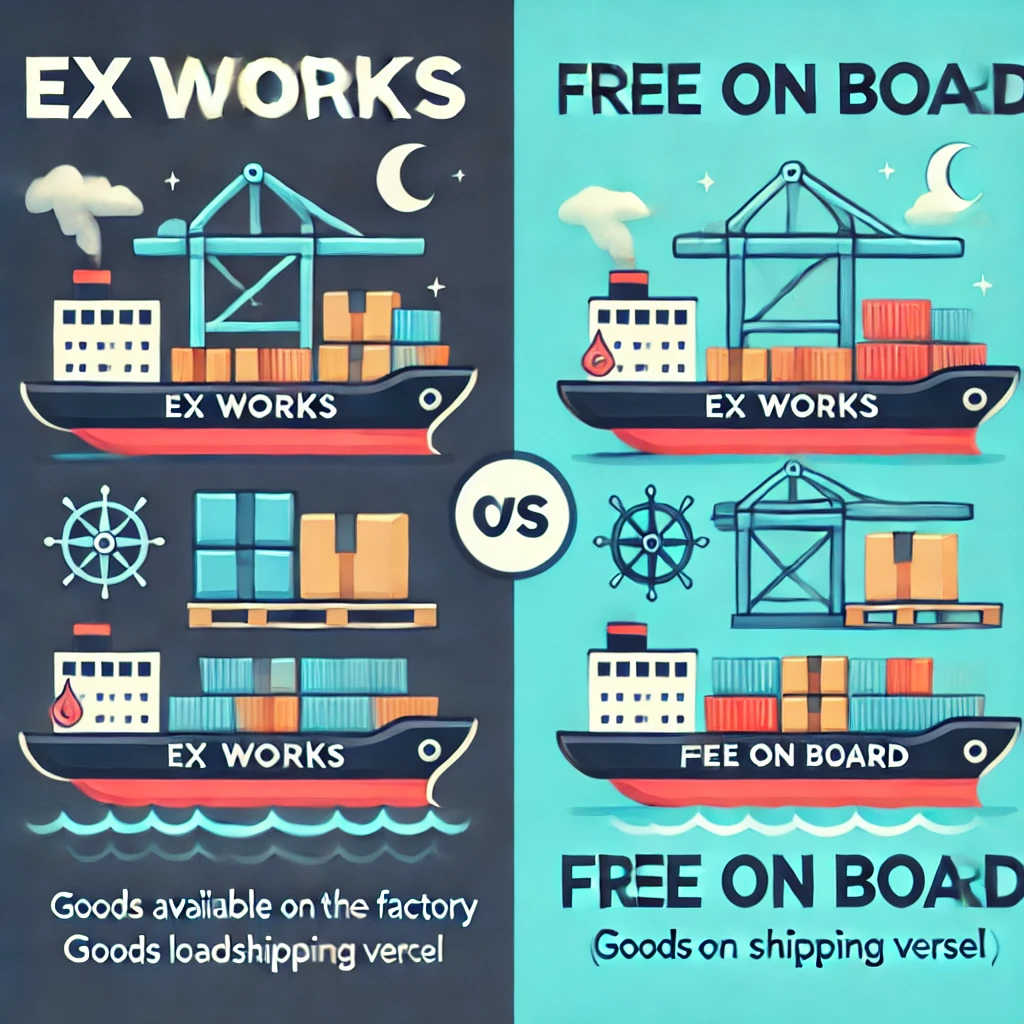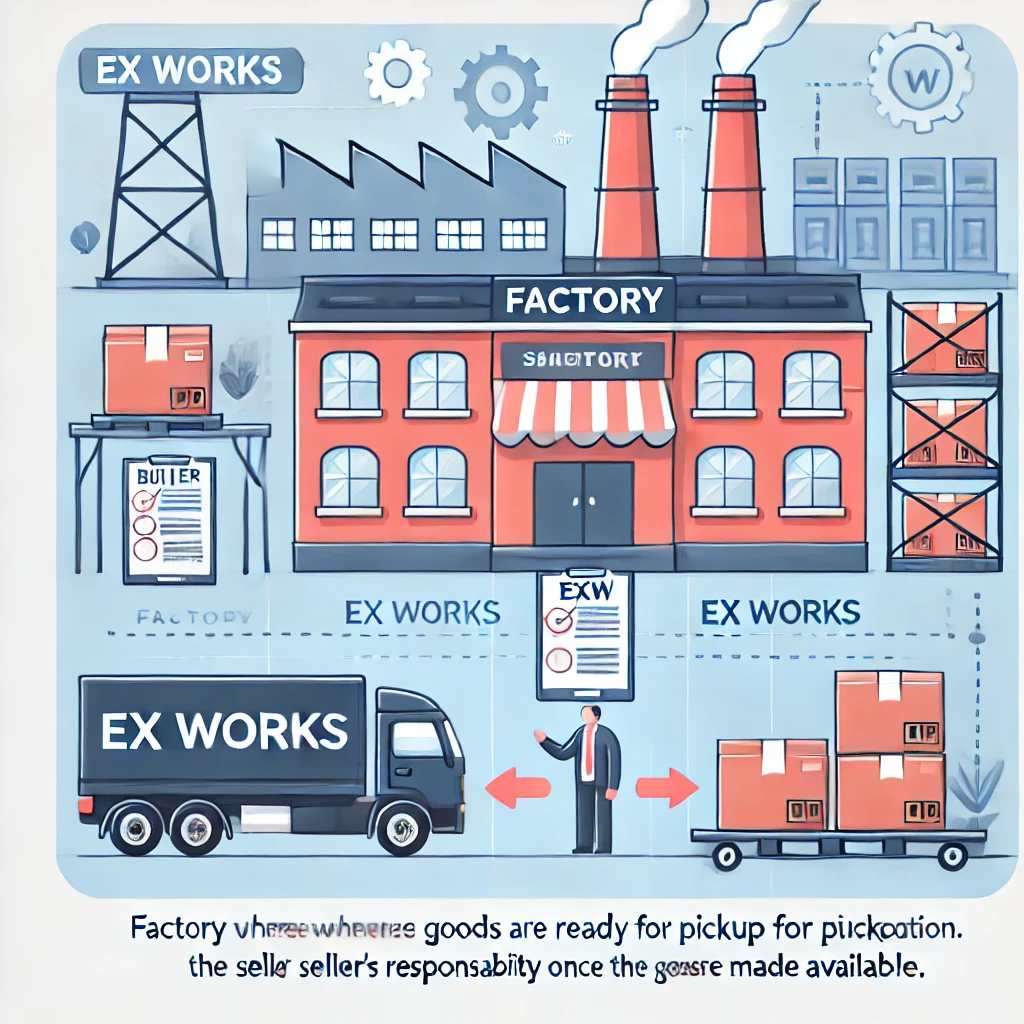An In-Depth Guide to Ex Works (EXW)

What Is Ex Works (EXW)?
Ex Works (EXW) is an Incoterm that places minimal responsibility on the seller. Under EXW, the seller only needs to make the goods available at their premises (e.g., a factory, warehouse, or distribution center). The buyer assumes all costs and risks associated with transporting the goods to their final destination.
Key Responsibilities Under Ex Works
Party | Responsibilities |
Seller | Prepares the goods and provides access for pickup at the designated location. |
Buyer | Handles transportation, export/import clearance, insurance, and delivery to the final destination. |

Key Features of Ex Works (EXW)
- Minimal Seller Obligation
- The seller is responsible only for making the goods available at a specified location.
- They do not handle loading, transportation, or customs clearance.
- Buyer-Controlled Logistics
- The buyer arranges transportation, chooses the carrier, and determines shipping routes.
- This allows the buyer to optimize costs but also increases their responsibility.
- Customs Clearance Is Buyer’s Responsibility
- The buyer must handle export and import clearance, including documentation, taxes, and duties.
- This can be complex for businesses unfamiliar with international trade regulations.
- Cost-Effective for Sellers
- Since the seller does not manage logistics, EXW can be more cost-efficient for exporters.
- However, it can be challenging for inexperienced buyers.
Practical Uses of Ex Works (EXW)
1. Manufacturing and Bulk Exports
Many manufacturers use EXW when selling bulk orders to international buyers who prefer to manage their own logistics.
2. Businesses with Strong Logistics Networks
Companies with established freight forwarding partners often prefer EXW to have full control over shipping costs.
3. Small Businesses or Direct Purchases
Entrepreneurs and small businesses buying machinery, raw materials, or wholesale goods often use EXW to reduce supplier-side costs.
4. High-Value and Specialized Shipments
Industries dealing with specialized or fragile goods may choose EXW to ensure safe and custom transportation arrangements.

Advantages and Disadvantages of Ex Works
Advantages | Disadvantages |
Lower seller responsibility – The seller only needs to prepare the goods. | Higher buyer responsibility – The buyer must handle all logistics. |
Greater buyer control over shipping – Buyers can optimize costs. | Complex customs process – The buyer is responsible for export and import clearance. |
Flexible carrier selection – Buyers can choose cost-effective shipping partners. | Higher risk for the buyer – The buyer assumes all liability once the goods are made available. |
Ex Works vs. Other Incoterms
Incoterm | Seller’s Responsibility | Buyer’s Responsibility |
Goods available at seller’s location. | Full responsibility for transport, customs, and insurance. | |
FOB (Free on Board) | Seller delivers goods to the shipping vessel. | Buyer takes over once goods are on board. |
CIF (Cost, Insurance, and Freight) | Seller arranges freight and insurance to the buyer’s port. | Buyer handles import clearance and final delivery. |
DDP (Delivered Duty Paid) | Seller handles full transport, including import duties. | Buyer only receives the goods at the destination. |

When to Use Ex Works?
- Best for experienced importers who have logistics expertise.
- Useful when buyers want full control over shipping routes and carriers.
- Ideal for manufacturers who want to minimize shipping responsibilities.
- Not recommended for buyers unfamiliar with customs processes.
Conclusion
Ex Works (EXW) is a popular Incoterm that shifts the responsibility of transportation, insurance, and customs clearance to the buyer. While it offers cost-saving opportunities and greater logistics control, it also increases the complexity and risks for the buyer.
Understanding when to use EXW and comparing it with other Incoterms is essential for businesses involved in international trade. Whether you are a manufacturer, importer, or freight forwarder, choosing the right Incoterm can significantly impact your logistics efficiency and overall costs.
